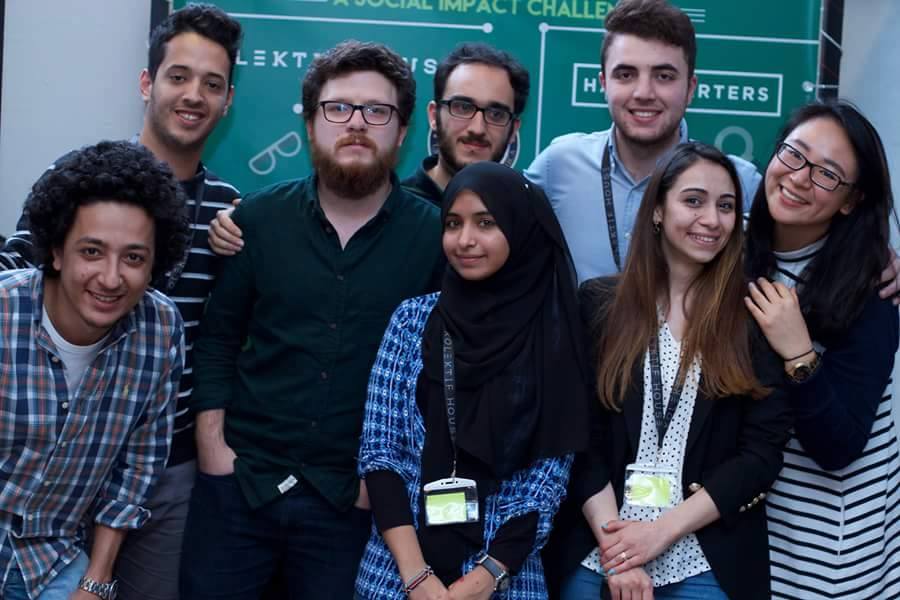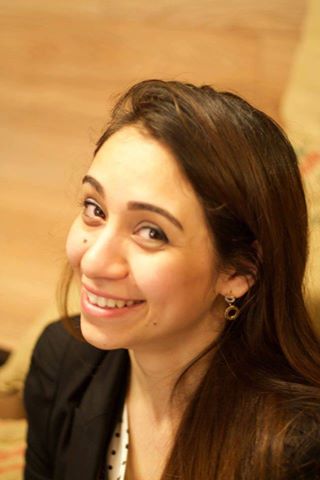(Zaman Al Wasl- EQTSAD)- The humanitarian and innovative initiatives vary within the milieu of Syrians in Turkey with the variety of directions, orientations, and issues organizers want to address. We rarely find an initiative that achieves general aims and reaches a segment of society other than refugees.
Recently activists from different countries including Syrians released a social initiative entitled, “Istanbul and I” that enshrines the humanity of the city through the stories of millions of people that Istanbul embraces from across the world.
The initiative team included a large number of youths from different nationalities, as the engineer Ghazal Sabah said to “Economist” pointing out that “the team includes designers, photographers, videographers, persons working in marketing, and journalists from different countries.”

The team members hit the streets and neighborhoods of Istanbul every morning to document people’s stories, photograph or film segments of video while telling stories that are being to translated into English, Arabic and Turkish, and then disseminated on the initiative’s Facebook page.
“Istanbul and I” team finished in the last few weeks and released different reports about street food, about women, and transport. The team transferred walking salesmen’s stories such as chestnut salesmen, the experiences of successful Syrian ladies. The team members undertook interviews with bus drivers inside Istanbul, and ferry drivers along the Mediterranean Sea.
Our speaker highlighted that, “there are many stories that affected the team members, and of them the story of the couple who lived in Dubai, and decided” as she says, “to change their careers so the husband became a pilot while he was a mechanical engineer before, and the wife became a film maker after she was a journalist.”
Of these stories according to M. Sabah, “a story of an Iraqi girl who lost her parents and brothers in the American war in Iraq, and decided to come to Istanbul and start her life again with strength and insistence on living.
In Istanbul she studied for a master’s in business and started a cultural library.”

A number of team members in a competition entitled hackathon, related to designing a website or executing an application that helps Syrian refugees one way or another. Our speaker indicated that the small team won the first prize in the communication following their designing an electronic website entitled hand to heart that works on helping Syrian women refugees who make handcrafts to sell their products on the website.
The team communicated, according to our speaker, with more than one productive woman to market their products on the website that will be activated during a short period of time.
Our speaker explained that the team sought to market Syrian products through the website to European markets, sell them, ship them, and transfer the payments back to the producers.
Ghazal Sabah indicated that “most of the expert hands, brilliant productive minds in the Syrian refugee milieu in Turkey lack funding. The lack of funding limits their production or limits the productive to meeting demand.
There is a problem in the lack of spaces to exhibit products, as well as the limit of the sales market, and its limitation to acquaintances and Syrian pages on Facebook only.”
(Writing by Faris al-Refai; Translation by Rana Abdul)
Recently activists from different countries including Syrians released a social initiative entitled, “Istanbul and I” that enshrines the humanity of the city through the stories of millions of people that Istanbul embraces from across the world.
The initiative team included a large number of youths from different nationalities, as the engineer Ghazal Sabah said to “Economist” pointing out that “the team includes designers, photographers, videographers, persons working in marketing, and journalists from different countries.”

The team members hit the streets and neighborhoods of Istanbul every morning to document people’s stories, photograph or film segments of video while telling stories that are being to translated into English, Arabic and Turkish, and then disseminated on the initiative’s Facebook page.
“Istanbul and I” team finished in the last few weeks and released different reports about street food, about women, and transport. The team transferred walking salesmen’s stories such as chestnut salesmen, the experiences of successful Syrian ladies. The team members undertook interviews with bus drivers inside Istanbul, and ferry drivers along the Mediterranean Sea.
Our speaker highlighted that, “there are many stories that affected the team members, and of them the story of the couple who lived in Dubai, and decided” as she says, “to change their careers so the husband became a pilot while he was a mechanical engineer before, and the wife became a film maker after she was a journalist.”
Of these stories according to M. Sabah, “a story of an Iraqi girl who lost her parents and brothers in the American war in Iraq, and decided to come to Istanbul and start her life again with strength and insistence on living.
In Istanbul she studied for a master’s in business and started a cultural library.”

A number of team members in a competition entitled hackathon, related to designing a website or executing an application that helps Syrian refugees one way or another. Our speaker indicated that the small team won the first prize in the communication following their designing an electronic website entitled hand to heart that works on helping Syrian women refugees who make handcrafts to sell their products on the website.
The team communicated, according to our speaker, with more than one productive woman to market their products on the website that will be activated during a short period of time.
Our speaker explained that the team sought to market Syrian products through the website to European markets, sell them, ship them, and transfer the payments back to the producers.
Ghazal Sabah indicated that “most of the expert hands, brilliant productive minds in the Syrian refugee milieu in Turkey lack funding. The lack of funding limits their production or limits the productive to meeting demand.
There is a problem in the lack of spaces to exhibit products, as well as the limit of the sales market, and its limitation to acquaintances and Syrian pages on Facebook only.”
(Writing by Faris al-Refai; Translation by Rana Abdul)
















Comments About This Article
Please fill the fields below.